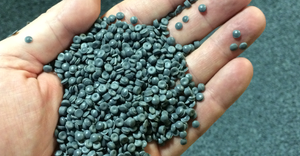EPA Revises Rule to Promote Responsible Recycling of Hazardous Waste
The U.S. Environmental Protection Agency (EPA) has completed a revision of its definition of solid waste rule aiming to promote responsible recycling of hazardous waste materials and to push recycling innovation.
The Definition of Solid Waste (DSW) final rule modifies the EPA’s 2008 DSW rule to protect human health and the environment from hazardous waste recycling mismanagement while promoting sustainability through responsible recycling of the materials, according to an EPA news release.
The EPA performed an extensive environmental justice analysis of the DSW rule that examined the location of recycling facilities and their impact on adjacent residents. The study identified some significant gaps in the 2008 rule that could negatively impact those residents.
The new rule requires off-site recycling at a facility with a Resource Conservation and Recovery Act (RCRA) permit or verified recycler variance; affirms the legitimacy of pre-2008 DSW exclusions; and revises the definition of legitimate recycling affirming in-process recycling and commodity-grade recycled products.
“Americans do not have to choose between a clean environment and economic prosperity,” said Mathy Stanislaus, assistant administrator for EPA’s Office of Solid Waste and Emergency Response. “This important rule gives communities a voice in the decisions that impact them, promotes safe and responsible recycling of hazardous secondary materials and conserves vital resources, while protecting those most at risk from the dangers of hazardous secondary materials mismanagement.”
About the Author
You May Also Like


